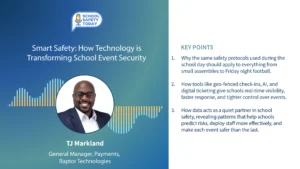For Post-Pandemic Online Tutoring to Work, Educators Must Address Personalization & Scale
Paper’s Online Tutoring Solution rocketed as educators looked for solutions to shore up the learning loss from the pandemic. Paper, a virtual tutoring company, provides an enticing hook: high-quality support for students at a lower price point. Many education systems took the bait, using COVID relief funds to provide students with 24/7 access to on-demand post-pandemic online tutoring.
Only one problem: students aren’t using the tool. In an article on Chalkbeat, officials in Columbus City Schools found less than 8% of students with access to the service logged on last school year, with half of those only using it once. Columbus school board president, Jennifer Adair, noted one of her students found the experience frustrating and annoying.
Educators recognize the need for such solutions, but if the answer isn’t helping the student, it only compounds the problem. That doesn’t mean educators should abandon online tutoring altogether, but perhaps a different approach is needed. What does that look like?
Anna Moss, Founder and Lead Educator at Mind the Test, believes a more personal approach to online tutoring could provide the learning benefits education systems seek, though acknowledges that scale can be an inhibitor to making that improved approach a reality.
Anna’s Thoughts
“When it comes to online tutoring, there are two quite different products that are often conflated. The first is this kind of random assignment, often with 24/7 or pretty frequent coverage where a student logs in whenever they want, they don’t have an appointment, they get assigned whoever happens to be on at that time, the tutor has no idea what the student is going to bring.
Is it going to be a kindergartner doing English? Is it going to be a high school student doing biology? They don’t know. They can’t prepare and you’re going to see effects from that. On the other hand, you have more of what I do with Mind The Test Tutoring, where your tutor is a personal coach or learning designer, essentially, that you meet with regularly every single week, your tutor knows you, they know what you need, and they design everything around you.
Is that scalable at a school district or national level? In my experience, I find it that it’s not that. This is why I haven’t really hired anyone. It’s always it’s me and then I have one intern that I train seriously before I even let them talk with a student. It’s just difficult to scale the real high quality tutoring.
The problem isn’t technology, in my opinion. I teach primarily online with middle and high schoolers. The technology is great, however, for low income students or students who just don’t have a very strong internet connection that can be prohibitive.”







